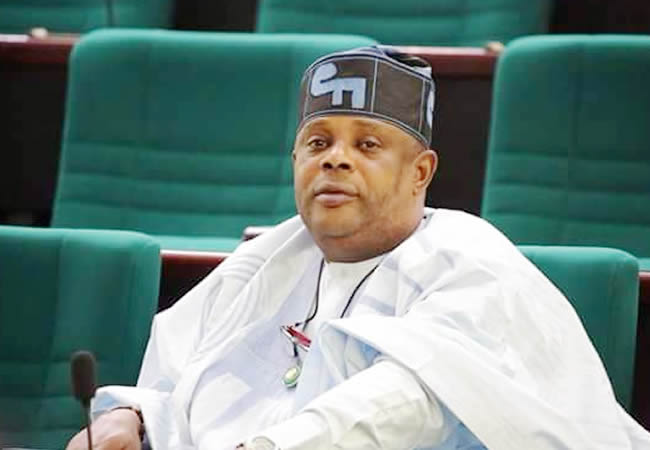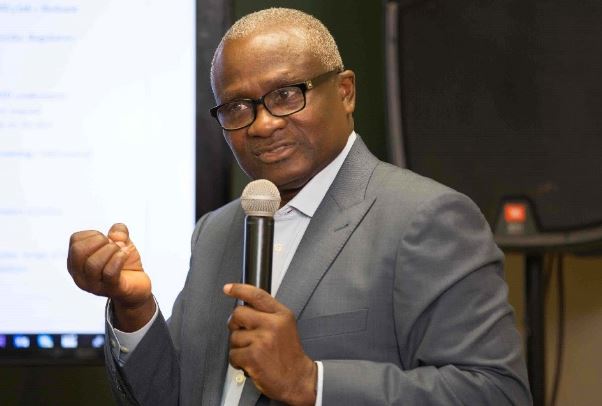The Nigeria Centre for Disease Control and Prevention (NCDC) says it registered 63 deaths and 2102 suspected cases in the ongoing cholera epidemic across the country.
The Director-General of the centre, Dr Jide Idris, said this during a news conference on the cholera situation on Tuesday in Abuja.
Cholera is a severe diarrheal illness caused by the bacterium Vibrio cholerae, and has remained a significant health challenge, especially in regions with inadequate sanitation and clean water.
It is, therefore, advisable to understand the disease transmission mechanism so as to curb its spread.
Idris said that as at June 30, Nigeria recorded 2,102 suspected cholera cases and 63 deaths across 33 states and 122 local government areas, with a case fatality rate of 3.0 per cent
The NCDC boss said that the top 10 affected states are Lagos, Bayelsa, Abia, Zamfara, Bauchi, Katsina, Cross River, Ebonyi, Rivers, and Delta, with seven of these being in the south.
He said that the National Cholera Multisectoral Emergency Operation Centre (EOC), activated for this crisis, comprised subject matter experts who coordinate the response, ensuring effective resource mobilisation, surveillance, case management, and community engagement.
He said that the measures aim to enhance diagnostic capacity, treatment, and public awareness.
According to him, there are key prevention and response activities initiated by the agency.
“Such activities include assessments in 22 hotspot states, distribution of medical supplies, technical support, training programmes and public health advisories,” he said.
The NCDC boss said that in spite of strong political support and efforts, challenges like open defecation, inadequate toilet facilities, poor water and sanitation, waste management issues, and weak regulatory practices persisted.
He added said that the impact of climate change and flooding exacerbated the cholera situation in the country.
He said that there were efforts to continue to combat the outbreak, with a focus on improving hygiene practices, enforcing public health laws, and enhancing healthcare workers’ capacity at state and local levels.
“Only 123 (16 per cent) of 774 LGAs in Nigeria are open defeacation free. With Jigawa as the only open defeacation free state in Nigeria. More than 48 million Nigerians practice open defecation.
“Inadequate toilet facilities and existing ones even in many government facilities not well maintained. Inadequate Safe water and poor sanitation,” he said.
According to him, 11 per cent of schools, six per cent of health facilities, four per cent of motor parks and markets, have access to basic water, sanitation and hygiene services.
He listed its causes to include poor waste management practices, poor food, environmental and personal hygiene practices., capacity gap among health care workers at the state and LGA levels.
“Weak regulation on construction of soak away and bore holes (some sunk close to water source and bore holes sunk in wrong location).
“Inadequate Implementation and enforcement of public nuisance law and other relevant public health laws.
“Inadequate capacity at State level – delayed disease reporting and response action. Capacity gap among health care workers at the state and LGA levels.
“Also, poor regulation of food vendor and commercial water supply on hygiene, weak regulation on sighting of boreholes and well, which are close to sewage or toilets pathways,” he said.
He said that low knowledge and practice of basic hygiene such as hand washing and effect of climate change and flood was also a major cause of cholera.
Meanwhile, the Minister of State for Environment, Dr Iziaq Salako, said that the cholera outbreak in the country came as a stark reminder that when the country failed to prioritise environmental sanitation, public health would be jeopardised and economy would be affected.
“Nigeria is experiencing the adverse impact of climate change as evidenced by the shift in seasons, rising sea levels and more frequent extreme weather events like floods, droughts and heat waves with undeniable health consequences,” Salako said.
According to him, the combination of climate change and poor sanitation, without doubt, poses a double jeopardy to the health of the planet and all creatures on it.
Recall that public health experts have suggested comprehensive strategy to combat the cholera outbreak.
The experts also called for improved sanitation, access to safe water, proper hygiene, and better living conditions to address this recurrent and predictable loss of lives.
They advocated for the classification of cholera as a neglected tropical disease.
Cholera, a virulent but treatable disease, causes 2.9 million cases and 95,000 deaths annually worldwide.
Proper management keeps mortality under one percent, but it can rise to 60 percent if untreated.
Historically, cholera has shaped public health, from John Snow’s 1854 London outbreak response to the development of life-saving oral rehydration therapy by Hemendra Nath Chatterjee in 1953.




